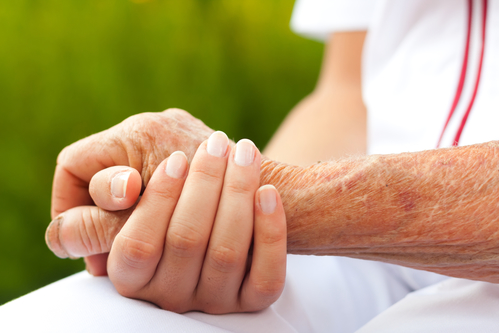Rebecca Zeni was one of 35 staff members and residents of a Georgia nursing home who were infested by a scabies outbreak. Unfortunately for Zeni, 93, she succumbed to her massive bite injuries at the Shepherd Hills Nursing Home. That horrific incident took place in 2015.
It took three years of investigative work to get lawmakers involved, with no legislative action taken to date. Because nursing homes are under no obligation to report such infestations under current law, the outbreak that took Zeni’s life flew under the radar.
Story after story brings to light similar abuses until lack of political traction pushes nursing home issues back into the shadows.
Nursing home neglect and abuse have transpired for far too long. The following is some information to help you recognize the signs of abuse and neglect if your loved one is living in a nursing home, and what you can do to fight it.
Signs of Abuse in Nursing Homes
Elderly folks exhibit signs of wearing down after living long, fruitful lives. Facial appearances, skin tone, hair, eyes, and gait will change over time. This is natural.
Aggression toward senior citizens is unnatural, morally wrong, and will result in various physical and non-physical symptoms in your loved one.
If you are visiting your parents, grandparents, great uncle, or some close family friend in nursing care, and notice any of the following signs, run to a nursing home abuse attorney immediately – don’t walk:
- Sudden, unexpected weight loss due to malnutrition
- Pressure ulcers and bedsores, common when patients are not turned frequently enough
- Obvious signs of withdrawal or dissidence in persons who are normally “upbeat”
- Presence of living hazards in room, such as inadequate lighting, slick floors, or unclean bedding
- Foul smell emitting from persons who are not bathed or groomed sufficiently
These signs often worsen between outsider visits, and are frequently veiled by staff members attempting to cover their tracks.
Why is Nursing Home Negligence so Pervasive?
Staff at nursing facilities are often overworked, underpaid, and certainly underappreciated. To make matters worse, some CNAs are asked to perform duties outside their job descriptions and training. Not that the aforementioned factors excuse medical staff from abuse, of course, but working long hours creates an environment in which staff are constantly on edge, missing their families, and physically and emotionally exhausted.
Once staff become exhausted to the point of belligerence, they begin treating patients with disrespect. Medication is administered late. Scheduled activities – literally all some seniors have left – are intermittently cancelled without explanation. Patients’ hygiene goes out the window. Verbal abuse turns into outright violence. Rinse, repeat.
The “good” workers are often intimidated into remaining silent, or forced to quit. This means violations that should be reported are kept secret between the staff who are complicit to negligent care.
Stand Your Ground When Patients Cannot
It is no secret that Georgia is slow to investigate nursing home abuse and neglect reports – too slow, according to some. Some substantiated reports could get shuffled toward the bottom, while many others never make it out of the nursing home.
Waiting on politicians or thorough government investigations to remedy nursing home wrongdoings often puts patients in further jeopardy. Nobody wants that. So, it is time for every worker, visitor, and nursing home owner to stand up against elder abuse and neglect, which can be done in many ways:
- Foster workplace peace in whatever manner seems appropriate;
- Remind staff the consequences of breaking laws, and report employer retaliation immediately;
- Whistleblowing is an acceptable practice when lives are at risk. Remember this;
- Take note of any employees who act irresponsibly during their shift. Acts such as yelling at elderly persons, segregating people from groups, and neglecting housekeeping duties are important to note;
- If in management, address personnel shortages immediately. Forcing people to work long hours can contribute to elderly abuse; and,
- Always pay attention to your surroundings, even if that means double-checking each person’s room.
The CDC suggests that out of 10 elderly persons residing in skilled nursing facilities, residing alone or have home health visits, 1 will be abused. Be the change that one person needs in his or her life by standing up against elderly abuse.
Let no person tell you that elderly abuse is OK. The elderly abuse attorneys at Georgia Trial Attorneys are passionate about every senior citizen in the state, and will fight abuse head-on.

